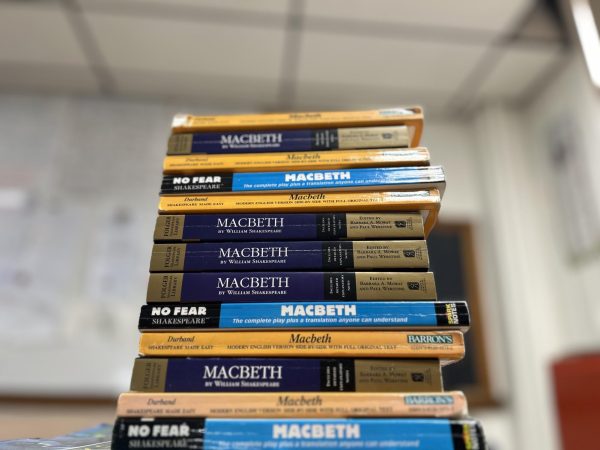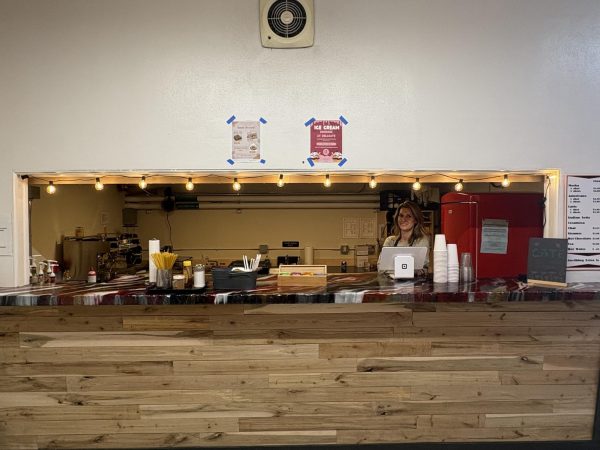A Plant Based Future
A couple months ago I would have considered myself an environmentalist. I recycle, I carpool, I try my best to avoid plastic, and of course I care about our planet. But now I’m not so sure if I should even call myself that. Because there’s one thing that has a very substantial impact on our climate yet we continue to ignore it. What you eat matters. In fact, it has a much larger impact than you might think.
Did you know that “Each day,” according to Nutritiously, “a person who eats a vegan diet, saves 1,100 gallons of water, 45 pounds of grain, 30 sq ft of forested land, 20 lbs CO2 equivalent, and one animal’s life.”
For those of you who are not familiar with veganism, it’s the avoidance of animal products for ethical, health, or environmental reasons. I’m sure some of you have heard this argument before, and maybe you’ve already made up your mind… “Me? A vegan? Oh no. I could never give up meat, I could never give up cheese!” I used to think the exact same way. But then I discovered some staggering facts and shocking statistics and the more and more I learned the more and more I started to ask myself, “Is that cheeseburger REALLY worth it?”
Personally, I do not identify as vegan or even vegetarian. But a couple months ago I did decide to go plant based. A plant based diet consists mostly of foods derived from plants with the overall avoidance of animal products. I’m not going to say it was easy. My parents do most of the grocery shopping and cooking in our house which proved to be challenging when I was eating differently than the rest of my family. At first, it was difficult not to have pepperoni on my pizza or ice cream for dessert… but it gave me a whole new perspective on food and opened up a diverse new spectrum of recipes. After a while, I even stopped craving those other foods. These days, it’s easy to feel hopeless, like there’s nothing we can do to really make a difference. But this can. Following the diet gave me a sense of purpose; I felt like I was directly making a positive impact.
I am not the first to advocate for a plant based diet, but I want to discuss some points that maybe you have never considered: Climate, health, cost, cultural norms, and ethics. Let’s examine the impact of our food choices, starting first with the environment.
Animal products are the silent killer of our planet. Researchers at the University of Oxford found that cutting meat and dairy products from your diet could reduce an individual’s carbon footprint from food by up to 73%. Why aren’t more people talking about this? I would argue that you shouldn’t even call yourself an environmentalist unless you are at least thinking about your diet and its detrimental effects to our climate. According to Nutriciously, “One pound of hamburger meat equals 75 kg CO2 emission which is about the same as using your car for 3 weeks.”
In addition, immense amounts of water are being used to produce animal products. According to Nutriciously, Over 700,000 gallons of water could be saved per person each year just by eating a vegan diet. Maybe you can’t afford solar panels on your house or buy an electric car. But simply eating a plant based diet could reduce your carbon footprint significantly in a cost efficient way. Leanne Cooper of the University of Aberdeen says it best: “We need to work towards a more nuanced approach to who is vegan and what veganism means in the age of tackling climate change.”
Those who follow a vegan or plant based diet are at much lower risk for many different health concerns. Being vegan alone can lower your chance of cancer, high blood pressure, high cholesterol, cardiovascular disease, diabetes, and stroke. There have been years of research and data gathered in search of ways to improve our health. Experts from many reputable organizations have expressed support for a plant based diet: The United Nations, The World Health Organization, The American Cancer Society, the Academy of Nutrition and Dietetics and many more. Not only would a plant based diet improve overall health, it could also drive down the cost of healthcare in our country. According to We Do Better, “A plant-based diet can prevent up to 80% of chronic conditions, and associated costs, saving thousands of lives, and over $250 Billion per year in healthcare costs.”
There are many stereotypes surrounding veganism, most of which are misleading. Some people think Vegans are just pretentious, annoying, leftist, hippies. Or that veganism is a just privileged movement for rich people. That, of course, is a myth. In fact, veganism is actually very economical. When you focus your diet around legumes, beans, nuts, seeds, fruits and veggies, you might actually cut your monthly food expense in half. Furthermore, many of these foods can be stored for long periods of time and bought in bulk. There are many great options for eating vegan on a budget.
If you’re still not sold on the argument of the environment, personal health, or cost, then let’s consider the ethics behind our dietary choices. I believe animals are here with us, not for us. The killing of animals is outdated when it comes to the food industry and there is no evidence to suggest that we need animal products in our diet to live a healthy and thriving life. According to Nutricoulsy, “Around 70% of the grain grown in the US alone is fed to livestock – that’s enough grain to feed 800 million people.” Quite literally, reducing our consumption of animal products could feed the worlds hungry.
It is also worth considering cultural norms surrounding the consumption of meat. There are many animals that we, as Americans, would never consider eating, such as a much beloved family dog. And yet, our mindset is much different for that of a cow or a chicken. However, the eating of dog meat is seen by some cultures as part of their traditional, ritualistic, or everyday cuisine. While in other cultures it may be seen as taboo. Even within the same country, opinions can vary drastically. For instance, across many regions in India, people who follow the Hindu religion believe that cows are sacred and would never consider eating beef. The slaughter of a cow is illegal in some of those regions. However, just down the road there may be an Indian state where beef is legal and readily available. Although I believe it is important to consider the ethics surrounding animals in our diet, it is also important to first take into consideration the cultural influence of those choices.
Let’s talk about milk. The debate has been going on for decades. Should we drink cow’s milk? Or should we not? Some essential nutrients can be found in cow’s milk, such as potassium and calcium. But cow’s milk also comes packed with hormones, perfect if you are a baby cow. Which we are not. In fact, according to Science ABC, “When it comes to mammals, we’re the only species to drink milk directly from another species. Or at least, we’re the only one to do so in adulthood.” There are currently 10 different kinds of non-dairy milk available to consumers. So there is really no reason we can’t find a plant based alternative when it comes to our milk choices.
There has never been a better time to go vegan than right now, when more and more restaurants and grocery stores are offering vegan substitutes. You’d be surprised by how many of your favorite foods you can still eat. But maybe veganism is still a bit extreme for you. In that case, there are many other plant based options such as pescatarian, flexitarian, or vegetarian. Even just shifting towards a more plant based diet can still make a huge difference.
Did you know that only 3% of the U.S. population is vegan? though that number is rapidly increasing. Kelly Fairchild, a global business development manager, said, “Recent years have seen rapid adoption of vegan diets and more meat-free products making their way onto shelves.” In the past, veganism has been largely an animal rights movement, now, the idea of veganism is expanding to wider concerns around the climate and personal health.
Veganism is not a trend or fad, it’s the future. I am not going to stand here and tell you that you should be vegan, but I ask that you start a conversation with friends and family, educate yourself and others, do what you can, when you can, and most importantly, be a part of this change. And remember, it’s not that difficult, it’s just different.

Hi! I'm Sophia and I am a senior at Hellgate. This is my first year with the Lance and I am excited to share some stories this year. I enjoy running cross...




